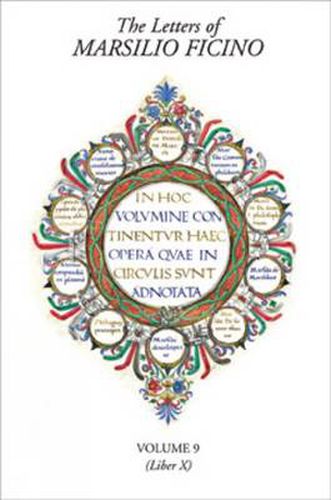Readings Newsletter
Become a Readings Member to make your shopping experience even easier.
Sign in or sign up for free!
You’re not far away from qualifying for FREE standard shipping within Australia
You’ve qualified for FREE standard shipping within Australia
The cart is loading…






‘All religion is natural to man and is the surest foundation for immortality’ (Letter 10) This volume brings together correspondence from the last decade of Marsilio Ficino’s life, spanning the period late 1489 to spring 1491. ‘Marsilio Ficino (1433-1499) was at the very fountainhead of some of the most characteristic and influential aspects of the Italian Renaissance.’ C.B. Schmitt in The Times Literary Supplement ‘All that we regard as the norm of Western European art - Botticelli’s paintings, Monteverdi’s music, Shakespeare’s philosophical lovers, Berowne and Lorenzo, Jacques and Portia - has flowered from Ficino’s Florence.’ Kathleen Raine in The Times Written during the preparation of his translation and commentaries on the Enneads of Plotinus, Ficino’s philosophical letters to his friends and fellow Florentines in this volume provide an insight into what was uppermost in his mind at the time. This volume introduces us to an intriguing group of people (Ficino was clearly a member) who met informally under the name of ‘Mammola’. It appears to have been a company of like-minded citizens seeking to deepen their understanding of the great philosophical works Ficino was translating and exploring how to make practical the idea of philosophy as a way of life rather than just an intellectual pursuit. The letters also give us an insight into the political context in which he was working.The Church had sought to prosecute him for magic, predictive astrology and spirit-worship following the publication of his controversial Three Books on Life in 1489. To protect himself Ficino made strenuous efforts to gain and maintain the patronage of Lorenzo de’ Medici and other powerful figures in law, medicine and the clergy, revealing his often precarious social position during this period. Above all else, this collection of letters traces the final development of Ficino’s interest in the relationship between God, the Soul and the eternal truths that he believed were to be found in Plato. His ideas on religion and immortality articulated in these letters transcend his historical moment and have as much to teach us today as when they were written. The Church accepted the immortality of the soul as dogma after his death. ‘Undoubtedly these letters comprise one of the spiritual classics of the past thousand years.’ Christopher Booker in The Spectator * Volume 9 in the Shepheard-Walwyn edition, the first English translation of The Letters, corresponds with Book X of the Latin edition.
$9.00 standard shipping within Australia
FREE standard shipping within Australia for orders over $100.00
Express & International shipping calculated at checkout
‘All religion is natural to man and is the surest foundation for immortality’ (Letter 10) This volume brings together correspondence from the last decade of Marsilio Ficino’s life, spanning the period late 1489 to spring 1491. ‘Marsilio Ficino (1433-1499) was at the very fountainhead of some of the most characteristic and influential aspects of the Italian Renaissance.’ C.B. Schmitt in The Times Literary Supplement ‘All that we regard as the norm of Western European art - Botticelli’s paintings, Monteverdi’s music, Shakespeare’s philosophical lovers, Berowne and Lorenzo, Jacques and Portia - has flowered from Ficino’s Florence.’ Kathleen Raine in The Times Written during the preparation of his translation and commentaries on the Enneads of Plotinus, Ficino’s philosophical letters to his friends and fellow Florentines in this volume provide an insight into what was uppermost in his mind at the time. This volume introduces us to an intriguing group of people (Ficino was clearly a member) who met informally under the name of ‘Mammola’. It appears to have been a company of like-minded citizens seeking to deepen their understanding of the great philosophical works Ficino was translating and exploring how to make practical the idea of philosophy as a way of life rather than just an intellectual pursuit. The letters also give us an insight into the political context in which he was working.The Church had sought to prosecute him for magic, predictive astrology and spirit-worship following the publication of his controversial Three Books on Life in 1489. To protect himself Ficino made strenuous efforts to gain and maintain the patronage of Lorenzo de’ Medici and other powerful figures in law, medicine and the clergy, revealing his often precarious social position during this period. Above all else, this collection of letters traces the final development of Ficino’s interest in the relationship between God, the Soul and the eternal truths that he believed were to be found in Plato. His ideas on religion and immortality articulated in these letters transcend his historical moment and have as much to teach us today as when they were written. The Church accepted the immortality of the soul as dogma after his death. ‘Undoubtedly these letters comprise one of the spiritual classics of the past thousand years.’ Christopher Booker in The Spectator * Volume 9 in the Shepheard-Walwyn edition, the first English translation of The Letters, corresponds with Book X of the Latin edition.